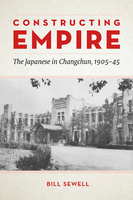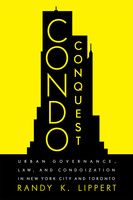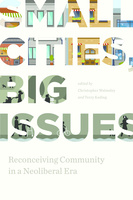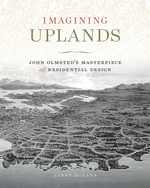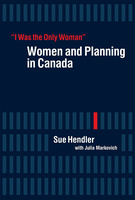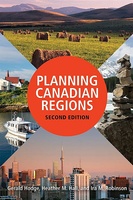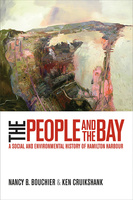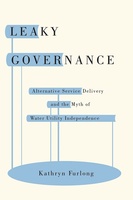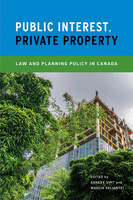Changing Neighbourhoods
Social and Spatial Polarization in Canadian Cities
Changing Neighbourhoods offers revealing insights into the way that Canadian cities have grown increasingly unequal and polarized since 1980, identifying the causal factors driving neighbourhood change and their troubling implications.
Planning on the Edge
Vancouver and the Challenges of Reconciliation, Social Justice, and Sustainable Development
Planning on the Edge explores the reality behind the rhetoric of Vancouver’s reputation as a sustainable city and paves the way for developing Vancouver and its region into a place that is both economically sustainable and socially just.
Vancouverism
This is the remarkable story, told by a key insider, about Vancouver’s dramatic transformation from a typical mid-sized North American city into an inspiring world-class metropolis celebrated for its liveability, sustainability, and vibrancy.
Constructing Empire
The Japanese in Changchun, 1905–45
While other studies focus on the role of diplomats and the military, Constructing Empire demonstrates that building the Japanese empire also required civilian participation.
Condo Conquest
Urban Governance, Law, and Condoization in New York City and Toronto
This eye-opening study shows how the condo, developed to meet the needs of a community of owners in cities in the 1960s, has been conquered by commercial interests.
Small Cities, Big Issues
Reconceiving Community in a Neoliberal Era
If local governments accept a social agenda as part of their responsibilities, the contributors to Small Cities, Big Issues believe that small cities can succeed in reconceiving community based on the ideals of acceptance, accommodation, and inclusion.
Imagining Uplands
John Olmsted's Masterpiece of Residential Design
Imagining Uplands recounts the efforts of the American landscape architect John Charles Olmsted to create an ideal and enduring subdivision on the suburban frontier of Victoria, British Columbia.
“I Was the Only Woman”
Women and Planning in Canada
A compelling new perspective on Canada’s planning history that offers a counter-narrative to the “official” story of the profession, one that has generally overlooked the contributions of women and the Community Planning Association of Canada.
Planning Canadian Regions, Second Edition
This much-anticipated second edition builds on lessons learned from the past and links them to current trends already shaping the future of regional planning in Canada.
Planning Toronto
The Planners, The Plans, Their Legacies, 1940-80
This lavishly illustrated book will stand as the definitive history of Toronto postwar planning and of the impact that planning has had on the city and its surrounding metropolitan area.
The People and the Bay
A Social and Environmental History of Hamilton Harbour
This engaging history brings to life the personalities and power struggles that shaped how Hamiltonians used their harbour and, in the process, invites readers to consider how moral and political choices being made about the natural world today will shape the cities of tomorrow.
Leaky Governance
Alternative Service Delivery and the Myth of Water Utility Independence
Municipalities face important water supply challenges. One response has been to render utilities independent from municipal government through alternative service delivery. Both water management and municipal governance must be strengthened to meet contemporary water supply needs.
Public Interest, Private Property
Law and Planning Policy in Canada
Through selected case studies, this volume explores the complex interplay between the public interest and private property rights in Canadian urban-planning policy.
Tactical Urbanism
Short-term Action for Long-term Change
The Proposal Economy
Neoliberal Citizenship in “Ontario’s Most Historic Town”
This book, based on extended ethnographic and multi-method research in a small town in Canada, adds new perspectives on the ways that citizenship is produced and reproduced under conditions of neoliberalism.




